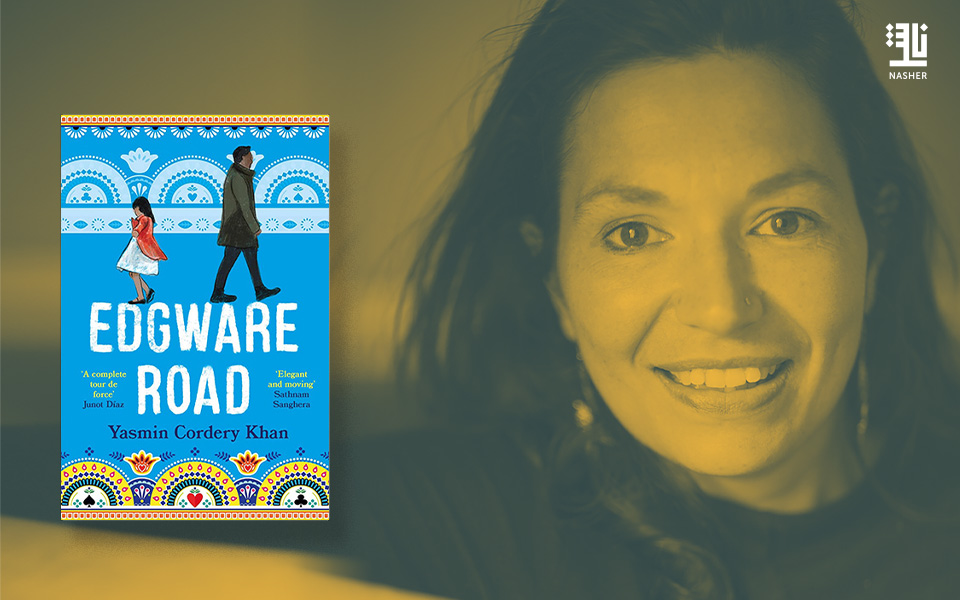Edgware Road is a wide-ranging and affecting debut novel about family and identity, from an award-winning historian.
- Khalid Quraishi is one of the lucky ones. He works nights in the glitzy West End and comes home every morning to his beautiful wife and daughter. Hes a world away from Karachi and the family he left behind.
But Khalid likes to gamble, and he likes to win. Twenty pounds on the fruit machine, fifty on a sure-thing horse, a thousand on an investment that seems certain to pay out. Now hes been offered a huge opportunity, a chance to get in early with a new bank, and it looks like hell finally have his big win.
- Alia Quraishi doesnt really remember her dad. After her parents divorce, she hardly saw him, and her mum refused to talk about her charming ex-husband. So, when he died in what the police wrote off as a sad accident, Alia had no reason to believe there was more going on.
Now almost twenty years have passed and shes tired of only understanding half of who she is. Her dads death alone and miles from his west London stomping ground doesnt add up with the man she knew. If shes going to find out the truth about her father and learn about the other half of herself Alia is going to have to visit his home, a place shes never been, and connect with a family that feel more like strangers. Slow burning but gripping; set between 1987 and 2003; you wittily alternate between Khalids point of view then, his daughter Alias there and then, and MP Mark Denbys.
From the very first page, you get sucked in this serious and complex story, which becomes a journey through different cultures, mixing up intricacies of family dynamics, friendships, politics, struggles of immigration, traditions and communities.
Travel with Alia to Pakistan. Explore the culture and embark on this sensory journey with her. Share her internal struggles towards her family. Accompany her in her quest for answers.
Discover Khalids life in the 80s. Share his dreams and ambitions for the future, his burning desire of richness and grandeur, of making a mark. Follow his struggles as an immigrant, the toughness of finding a job, his battles as a gambling addict, along with the devastating consequences that this can have.
Delve into the political dynamics, the dilemmas of right and wrong of Mark Denby. Share his family life, his discoveries about the dodgy BCCI bank, his secrets and his demons. Th
is starts out excellently. It is split between Alias story in 2003 and Khalids back in the 1980s, and Khan draws both characters beautifully. She shows Alias position, as a mixed-race person brought up with little contact with half of her heritage, very realistically and happily undramatically. Alia has had a good education and while her academic career isnt on as solid a footing as she would like, shes doing fine. By taking this British woman to Pakistan, Khan shows the differences in the two cultures and in the status of women within both societies middle-class women, in both cases and she doesnt set out to criticise either culture or to show one as better than the other. Instead she shows that the women are inclined to favour the culture of their upbringing, not surprisingly. Alia would find it hard to give up her British liberal attitudes, but she can see that the seemingly more restricted lifestyle of her Pakistani cousins has advantages too.
Khalids story is also done very well in the early part of the book. He is a croupier in Hefners Playboy casino in London. Rumours are also swirling that the Playboy Club and its manager, Victor Lowndes, are in trouble over dodgy financial dealings, and the club is about to have its gaming licence revoked. Khalid is himself a gambler and this has led to the breakdown of his marriage to Alias mum. Now he gets involved with Adnan Khashoggi and through him gets sucked into the dodgy dealings of the BCCI just before the scandal that brought the bank down.
Names such as Hefner, Lowndes, Khashoggi and BCCI are meaningless terms to many, unless you lived through these various scandals in the 80s, it is an angle that some readers will be bored by and even lost. From being an interesting study of character and culture, it gets bogged down in 80s references, and Khans plot, regarding the death of Khalid, isnt strong enough to fight its way through. The book needs a stronger plot with an added thriller element or, conversely, a simpler one, that concentrates on Alias journey of self-discovery rather than losing its way in some rather tedious ancient scandals. Readers will resort to skimming a chunk of the book due to its focus on the lesser interesting element of the book an investigation into the collapsed banking system at BCCI. The only aspect that will keep the reader going and wanting to finish the book is to know what had happened to Khalid, but it all seemed like a real anti-climax in the end. We have given Edgware Road 6/10.
Yasmin Cordery Khan is a writer, author of the debut novel Edgware Road, and the history books, The Great Partition, and The Raj at War. She was brought up in London and was educated by bursary and government-assisted place at King Edwards School, Witley, and at the University of Oxford, where she was awarded a first-class degree and doctorate. Her historical work has won the Gladstone Prize and the Karachi Literature Festival Prize, and has been listed for the Orwell Prize and the TATA Live prize. She has written for the Guardian, BBC History Magazine, Times Literary Supplement, Observer, Prospect magazine, and has broadcast widely on British television and radio. She can trace her family tree to Ireland, England, Pakistan and Argentina; she is British and lives in Oxfordshire with her family.







